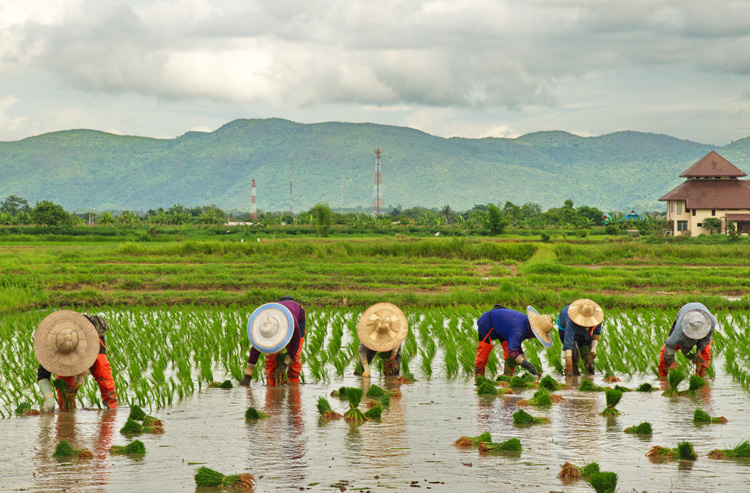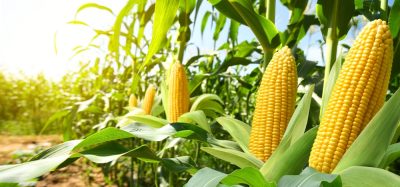Climate-smart rice production is key for global food security, says report
- Like
- Digg
- Del
- Tumblr
- VKontakte
- Buffer
- Love This
- Odnoklassniki
- Meneame
- Blogger
- Amazon
- Yahoo Mail
- Gmail
- AOL
- Newsvine
- HackerNews
- Evernote
- MySpace
- Mail.ru
- Viadeo
- Line
- Comments
- Yummly
- SMS
- Viber
- Telegram
- Subscribe
- Skype
- Facebook Messenger
- Kakao
- LiveJournal
- Yammer
- Edgar
- Fintel
- Mix
- Instapaper
- Copy Link
Posted: 25 November 2019 | Sam Mehmet (New Food) | No comments yet
Leveraging climate finance to scale climate-smart rice production is the cornerstone of global food security and urgently needed to avert civil unrest, according to a report by Earth Security Group (ESG).


Proposing three innovative finance solutions to support sustainable rice production in line with the Paris Agreement climate targets, Financing Sustainable Rice for a Secure Future was published by Earth Security Group (ESG), with support of the UN Capital Development Programme (UNCDF), the Sustainable Rice Platform (SRP), trader Phoenix Group, the World Business Council for Sustainable Development (WBCSD) and the Swiss Agency for Development and Cooperation (SDC).
The initiatives include a ‘rice bond’ to finance sustainable rice value chains, taking advantage of 2020 being a key year for the growth of green bonds in the agriculture sector, as highlighted by the Climate Bonds Initiative – which aims to grow low carbon and other climate-relate industries. A rice bond would allegedly enable a global rice processor, trader or retailer to provide farmers with capital to transition to sustainable production, improve farming practices, increase yields and revenue, and become more resilient to climate risks.
“The failure of global food systems due to climate change is one of the biggest security challenges we face. A radical overhaul of existing rice production systems is needed in Asia – the epicentre of global rice production and consumption – as well as Africa, which is now also increasingly depend on rice imports to ensure food security. Our report is a call to action for global impact investors to put ‘climate-smart’ rice farming practices at the centre of their impact investment strategies and for governments to use climate finance to attract private investment towards more resilient agriculture systems,” said Alejandro Litovsky, CEO of Earth Security Group.
Ahead of the 2019 United Nations Climate Change Conference (COP 25) in Madrid, ESG has recommended leveraging international climate finance to attract private sector investment for climate-smart rice production. Country pledges that include rice in their nationally determined contributions (NDCs) is said to be the starting position. At present, 48 countries include in their NDCs the commitment to reduce greenhouse gas (GHG) emissions from rice paddies, but have reportedly not yet outlined how they plan to incentivise the private sector to achieve these targets.
Rice is considered vital to the food security of over half the world’s population (3.5 billion), with Asia accounting for 90 percent of global rice consumption. In lower-income countries such as Bangladesh, Cambodia and Vietnam, up to 70 percent of people’s dietary energy comes from rice. In Southeast Asia, rice cultivation accounts for up to 25-33 percent of the region’s methane emissions, and between 10-20 percent of its overall greenhouse gas emissions.
Under a business-as-usual scenario, the Intergovernmental Panel on Climate Change (IPCC) has anticipated that rice production will fall across the world. Asia is predicted to be particularly hard hit due to a convergence of land degradation, climate change and water scarcity.
Larger rice-producing countries such as India and China, with extensive territories that cover a range of climatic zones, will allegedly have more space to shift rice cultivation to cooler areas that will become suitable for growing rice. However, smaller producers and importers in the tropical belt, such as countries in Southeast Asia and West Africa, are said to lack such flexibility to adapt.
Related topics
Environment, Food Security, Research & development, Sustainability









